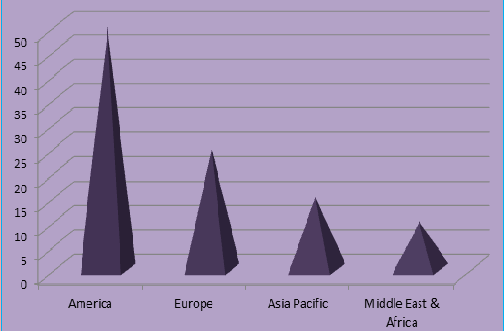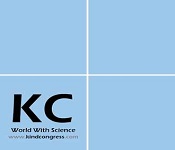Theme: Technical Strategies and advancements in Urology and Nephrological Disorders
Urology 2019
ME Conferences feels proud and honored to invite speakers, students, delegates specialists across the globe to attend its 18th Annual conference on Urology and Nephrological Disorders to be held on November 25-26, 2019 in Bali, Indonesia will be discuss with a theme of “Technical Strategies and advancements in Urology and Nephrological Disorders”. The conference highlights keynote presentations, oral talks, poster presentations and exhibitions. All the speakers, participants, students, and delegates from across the globe are cordially invited to the event. The International Conference Urology 2019 encourages the young student researchers through Poster Award Competition and Young Research Forum at the conference venue.
Urology 2019 is an integration of the science, theory and clinical knowledge for the purpose of analyzing, interpreting and to lessen kidney-based distress or dysfunction and to promote individual health and personal development. This global event will be an excellent opportunity for the nephrologists, Urologist and alternative practitioners to encourage the profound administration of kidney medication and explore the best case reports where ultimate results to justify curing and healing by various methodologies to various ailments has been noted with evidence and providing the righteous option for treating chronic ailments.
Target Audience:
- Urologist
- Nephrologists
- Nephrology Scientists
- Pathologists
- Dialysis Centers
- Nephrology Researchers
- Fellows or postdoctoral students
- Nephrology Academicians
- Emeritus
- Young research scientists
- Business delegates
- Medical Students
- Manufacturing Medical Devices Companies
- Kidney transplantation surgeons
Track 1: Nephrology Medicine
Nephrology is the subspecialty of interior medicine that emphases on the diagnosis and treatment of diseases of the kidney. Because the kidney implements so many critical functions, nephrologists maintain expertise in primary kidney disorders, but also the management of the systemic consequences of kidney dysfunction. A thorough understanding of the involvement of the kidneys in other systemic diseases (such as vasculitis or heart failure) is a primary role of nephrologists, and because of the central role of the kidney in maintaining blood pressure, nephrologists also possess expertise in the management of hypertension, particularly when difficult to control. Nephrologists also help in managing fluid, electrolyte, and acid-base disturbances, particularly those occurring in advanced kidney disease. A major role of nephrology is the oversight of dialysis (including hemodialysis and peritoneal dialysis) in patients requiring renal replacement therapy, and participation in the kidney transplant process.
Sub Tracks:
- Emergency Medicine
- End-Stage Renal Disease (ESRD)
- Continual Kidney Disorder
- Hydronephrosis
Recommended: Nephrology Conferences | Urology Meetings | Nephrology-Urology Events | Kidney Conferences
Track 2: Pediatric Nephrology
Pediatric nephrology is specialization of diagnosis & management of children with kidney diseases. Different kidney infections like pediatric nephritis is clinically and genetically heterogeneous substance depicted by falling away from the faith, and relentless course with essential in suspiciousness and mortality happening as a result of complexities of the disorder itself, and its treatment. In the pediatric and neonatal intensive care units Acute kidney injury (AKI) is a common complication where Renal replacement therapy (RRT) is frequently implemented in children in whom the supportive therapy is not to the mark to touch the metabolic demands. In majority, peritoneal dialysis is more preferred for children in the times of renal replacement because of the non-complexity of the procedure. In most of the pediatric end stage renal disease, peritoneal dialysis is more preferred as it can be done even in home.
Sub Tracks:
- Renal Dysplasia
- Autosomal Recessive Polycystic Disease (ARPKD)
- Focal Segmental Glomerulosclerosis (FSGS)
- Alport Syndrome
Recommended: Nephrology Conferences | Urology Meetings | Nephrology-Urology Events | Kidney Conferences
Track 3: Clinical Nephrology
Clinical Nephrology involves medical treatment of kidney diseases and conditions. This may entail working with other areas of the body that also are influenced by the kidneys. Kidney problems can cause electrolyte imbalances in the bloodstream, resulting in serious symptoms including excess fluid in the tissues, mental confusion or irregular heartbeat. Clinical nephrology also can help patients who have high blood pressure, because hypertension can be destructive to the kidneys. Clinical Nephrology is the sub claim to fame of medicine that deals with the analysis of the working of the familiar kidney, issues in kidney functioning , treatment of the disparity from the norm in kidney functioning, renal transplantation and in addition kidney transplant techniques. Numerous diseases influencing the kidney are systemic scatters not constrained to the organ itself, and may require uncommon treatment. Illustrations incorporate procured conditions, for example, systemic vasculitides and immune system diseases, lupus and innate or genetic conditions, such as, polycystic kidney diseases.
Sub Tracks:
- Advances in the Nephrology
- Kidney glomerulus podocyte
- Renal Plexus
- Gene and protein expression
Recommended: Nephrology Conferences | Urology Meetings | Nephrology-Urology Events | Kidney Conferences
Track 4: Kidney Transplantation
Kidney transplantation is an operation that places a healthy kidney in your body. The transplanted kidney takes over the work of the two kidneys that failed, so you no longer need renal dialysis. During a transplant, the surgeon places the new kidney in your lower abdomen and connects the artery and vein of the new kidney to your artery and vein. Often, the new kidney will start making urine as soon as your blood starts flowing through it. But sometimes it takes a few weeks to start working. Many transplanted kidneys come from donors who have died. Some come from a living family member. The wait for a new kidney can be long. A working transplanted kidney does a better job of filtering wastes and keeping you healthy than dialysis. However, a kidney transplant isn’t for everyone. Your doctor may tell you that you’re not healthy enough for transplant surgery. A working transplanted kidney does a better job of filtering wastes and keeping you healthy than dialysis.
Sub Tracks:
- Immunosuppressive Agents
- HLA and ABO
- Robotic Kidney Transplant
- Cyclosporine
Related Conferences: Nephrology Conferences | Urology Meetings | Nephrology-Urology Events | Kidney Conferences
Track 5: Surgery for Renal Diseases
The kidneys are two bean-shaped organs whose function is essential to life. The kidneys are located on either side of the spine behind the abdominal organs and below the rib cage. The kidneys perform several major functions. Filtration of the blood to remove waste products from normal body functions, passing the waste from the body as urine, and returning water and chemicals back to the body as necessary, Regulation of the blood pressure by releasing several hormones, Stimulation of production of red blood cells by releasing the hormone erythropoietin. The kidneys produce urine, which is then carried to the bladder by the ureters. The bladder serves as a storehouse for the urine. When the body senses that the bladder is full, the urine is excreted from the bladder through the urethra.
Sub Tracks:
- Hemodialysis
- Peritoneal dialysis
- Kidney transplant
- Conservative management
Recommended: Nephrology Conferences | Urology Meetings | Nephrology-Urology Events | Kidney Conferences
Track 6: Chronic Kidney Disease
Chronic kidney disease, also called chronic kidney failure, describes the gradual loss of kidney function. Your kidneys filter wastes and excess fluids from your blood, which are then excreted in your urine. or symptoms. Chronic kidney disease may not become apparent until your kidney function is significantly impaired. Treatment for chronic kidney disease focuses on slowing the progression of kidney damage, usually by controlling the underlying cause. Chronic kidney disease can progress to end-stage kidney failure, which is fatal without artificial filtering (dialysis) or a kidney transplant. Chronic kidney disease occurs when a disease or condition impairs kidney function, causing kidney damage to worsen over several months or years. When chronic kidney disease reaches an advanced stage, dangerous levels of fluid, electrolytes and wastes can build up in your body. In the early stages of chronic kidney disease, you may have few signs.
Sub Tracks:
- Polycystic kidney disease
- Kidney infections
- Glomerulonephritis
- Non-steroidal anti-inflammatory drugs (NSAIDs)
Recommended: Nephrology Conferences | Urology Meetings | Nephrology-Urology Events | Kidney Conferences
Track 7: Nephrology Nursing
Nephrology Nursing refers to the branch of internal medicine concerned with the study and treatment of the full spectrum of diseases that can afflict the kidneys. Certified nephrology nurses are skilled medical professionals who apply their specialized knowledge of kidney disease and related systems to the care of kidney disease patients and at-risk patients in a variety of medical settings. Working to both prevent disease and provide continuing support to patients and their families, nephrology nurses provide care through all points of kidney disease progression. Professional organizations serving the nephrology nursing community are focused on establishing standards within the specialty and advocating for nephrology nurse issues in the larger political sphere. The epidemic of kidney disease impacts many vulnerable patient communities and age groups, and nephrology associations are particularly effective in vocalizing patient, community, and over-arching healthcare system issues.
Sub Tracks:
- Clinical Nurse Specialist
- Hemodialysis Nurse
- Nurse Educator
- Kidney care support services
Recommended: Nephrology Conferences | Urology Meetings | Nephrology-Urology Events | Kidney Conferences
Track 8: Cardio Renal Failure
Cardiorenal syndrome (CRS) commonly occurs during treatment of acute decompensated heart failure (ADHF) and is associated with poor clinical outcome. The pathophysiology of CRS entails a complex interaction between hemodynamic alterations, including reduced renal perfusion, increased venous pressure and activation of multiple Neurohormonal systems. Attempts to effectively treat congestion while preserving renal function in ADHF are often met with limited clinical success and often require therapeutic decisions that reflect a compromise between potential benefits and harm. Cardio renal syndromes (CRS) have been subdivided into five syndromes representing clinical vignettes in which both the heart and the kidney are involved in bidirectional injury and dysfunction via a final common pathway of cell-to-cell death and accelerated apoptosis mediated by a variety of mechanisms including ischemia, inflammation, and oxidative injury.
Sub Tracks:
- Acute cardio renal syndrome
- Pathophysiology
- Congestion in the cardio-renal
- Cardiorenal versus Reno cardiac syndrome
Recommended: Nephrology Conferences | Urology Meetings | Nephrology-Urology Events | Kidney Conferences
Track 9: Renal Nutrition & Metabolism
Renal nutrition can be defined as a diet prescribed in chronic renal failure and which is designed to control the intake of protein, potassium, sodium, phosphorus, and fluids. The principal sources of energy are carbohydrates and fats. Protein intake is limited; and is usually supplied from milk, eggs, and meat. Bread, Cereals, pasta, and rice are the primary sources of calories. The diet may be nutritionally inadequate and should be supplemented with vitamins and electrolytes. Diet and nutrition are important part of living well with kidney disease. Patients who are affected by kidney disease should be more concerned about their diet and should follow the special dietary plans. Diet plan will vary according to the stage of kidney disease. Evaluation of food intake, particularly protein intake is monitored at a regular periodic interval to ensure the daily intake of protein which is important part for good quality of life. Since dialysis patient follow special diet plan, their diet may miss several vitamins. Dialysis also removes some vitamins from the body. The treating physician must prescribe vitamin tablets specially made for kidney disease patients.
Sub Tracks:
- Protein Equivalent of Nitrogen Appearance (PNA)
- Renal Osteodystrophy
- Evaluation of Nutritional Status
- Hyperlipidemia
Recommended: Nephrology Conferences | Urology Meetings | Nephrology-Urology Events | Kidney Conferences
Track 10: Urinary Tract Infection
A urinary tract infection may result when bacteria become trapped in urine that pools above a blockage. When stones block the urinary tract for a long time, urine backs up in the tubes inside the kidney, causing excessive pressure that can cause the kidney to swell (hydronephrosis) and eventually damage it. An organ which comes under urology is kidneys, adrenal glands, urethra, uterus and male reproductive organ. Common illness consists of UTI, Urinary Stones, Urinary incontinence, benign prostatic hyperplasia. The most common cause of infection is Escherichia coli other than bacteria fungi can also cause the infection. Diagnosis to these infections encompasses few tests like urinalysis, urine microscopy. Analysis procedure differs to the aged people and it also difficult. Although urinary system has natural defense to this infection sometimes it fails to encounter. Remedy to this infection is antibiotics. Phenazopyridine is prescribed and which helps in decreasing burning sensation and urgency often felt during bladder infection. About 150 million people develop urinary tract infection each year. Women are more infected than male.
Sub Tracks:
- Urethritis
- Pyelonephritis
- Disorders of Urination
- Urinary Tract Stones
Recommended: Nephrology Conferences | Urology Meetings | Nephrology-Urology Events | Kidney Conferences
Track 11: Diabetic Nephropathy & Hypertension
Diabetic nephropathy is characterized by hypertension, progressive albuminuria, glomerulosclerosis, and decline in glomerular filtration rate (GFR) leading to ESRD. Hypertension in the setting of diabetes is defined as a systolic blood pressure ≥ 130 mmHg or a diastolic blood pressure ≥ 80 mmHg. An elevated urinary albumin excretion rate, increased blood pressure (BP), and a continual loss of renal function are characteristics of DN. Screening for micro albuminuria is central to diabetes care, and antihypertensive agents are used for the primary prevention and treatment of DN. Angiotensin-converting enzyme inhibitors and angiotensin II receptor blockers play central roles and have protective properties beyond their BP-lowering effects. BP control in relation to DN is the main focus of this review, but tight control of the glucose level is equally important.
Sub Tracks:
- Hypertension Management
- Pathogenesis of diabetic nephropathy
- Hypertension-Clinical and Experimental Models
- Diabetic Nephropathy–Biomarkers of Disease
Recommended: Nephrology Conferences | Urology Meetings | Nephrology-Urology Events | Kidney Conferences
Track 12: Dialysis
The kidneys are responsible for filtering waste products from the blood. Dialysis is a procedure that is a substitute for many of the normal functions of the kidneys. An artificial kidney (hemodialyzer) is used to remove waste and extra chemicals and fluid from your blood. To get your blood into the artificial kidney, the doctor needs to make an access (entrance) into your blood vessels. This is done by minor surgery to your arm or leg. If your kidneys have failed, you will need to have dialysis treatments for your whole life unless you are able to get a kidney transplant. Life expectancy on dialysis can vary depending on your other medical conditions and how well you follow your treatment plan. Average life expectancy on dialysis is 5-10 years; however, many patients have lived well on dialysis for 20 or even 30 years. Talk to your healthcare team about how to take care of yourself and stay healthy on dialysis.
Sub Tracks:
- Intestinal Dialysis
- Intermittent Peritoneal Dialysis (IPD)
- Nocturnal Haemodialysis
- Kidney Dialysis Prognosis
Recommended: Nephrology Conferences | Urology Meetings | Nephrology-Urology Events | Kidney Conferences
Track 13: Renal Cancers and Diseases
The Kidney Cancer is also called as Renal Cancer. And it is a disease in which kidney cells become malignant (cancerous) and grows out of control, forming a tumor. Almost all kidney cancers first appear in the lining of tiny tubes (tubules) in the kidney. This type of kidney cancer is called renal cell carcinoma. The kidneys are two bean-shaped organs, each about the size of a fist. They lie in your lower abdomen on each side of your spine. Their main job is to clean your blood, removing waste products and making urine. The different types of kidney cancer (such as RCC and TCC) develop in different ways, meaning that the diseases have different long term outcomes, and need to be staged and treated in different ways. RCC is responsible for approximately 80% of primary renal cancers, and TCC accounts for the majority of the remainder. Researchers have also identified other factors that appear to increase the risk of developing both renal and transitional cell kidney cancers.
Sub Tracks:
- Metastatic Renal Cell Cancer
- Contemporary Management
- Laparoscopic partial nephrectomy
- Renal abnormalities
Recommended: Nephrology Conferences | Urology Meetings | Nephrology-Urology Events | Kidney Conferences
Track 14: Mineral and Bone Disorders
Mineral and bone disorder in chronic kidney disease (CKD) occurs when damaged kidneys and abnormal hormone levels cause calcium and phosphorus levels in a person's blood to be out of balance. Mineral and bone disorder commonly occurs in people with CKD and affects most people with kidney failure receiving dialysis. Chronic kidney disease is kidney damage that occurs slowly over many years, often due to diabetes or high blood pressure. Once damaged, the kidneys can’t filter blood as they should. This damage can cause wastes to build up in the body and other problems that can harm a person’s health, including mineral and bone disorder. The kidneys play an important role in maintaining healthy bone mass and structure by balancing phosphorus and calcium levels in the blood. Healthy kidneys activate a form of vitamin D that a person consumes in food, turning it into calcitriol, the active form of the vitamin. Calcitriol helps the kidneys maintain blood calcium levels and promotes the formation of bone. The kidneys also remove extra phosphorus, helping balance phosphorus and calcium levels in the blood. Keeping the proper level of phosphorus in the blood helps maintain strong bones.
Sub Tracks:
- Metabolic bone disease
- Renal osteodystrophy
- CKD-Mineral and Bone Disorder
- Disorders of phosphorus metabolism
Recommended: Nephrology Conferences | Urology Meetings | Nephrology-Urology Events | Kidney Conferences
Track 15: Urology
Urology is a part of health care that deals with diseases of the male and female urinary tract (kidneys, ureters, bladder and urethra). It also deals with the male organs that are able to make babies (penis, testes, scrotum, prostate, etc.). Since health problems in these body parts can happen to everyone, urologic health is important. Urology is known as a surgical specialty. Besides surgery, an urologist is a doctor with wisdom of internal medicine, pediatrics, gynecology and other parts of health care. This is because an urologist encounters a wide range of clinical problems. The urinary tract is your body’s drainage system for removing urine. Urine is composed of wastes and water. The urinary tract includes your kidneys, ureters, and bladder. To urinate normally, the urinary tract needs to work together in the correct order. Urologic diseases or conditions include urinary tract infections, kidney stones, bladder control problems, and prostate problems, among others. Some urologic conditions last only a short time, while others are long-lasting.
Sub Tracks:
- Urology Practice Management
- Clinical Urology
- Pediatric Urology
- Cancers of the Kidney and Genitourinary Tract
Recommended: Nephrology Conferences | Urology Meetings | Nephrology-Urology Events | Kidney Conferences
Track 16: Kidney and Bladder Stones
Stones are more common among people with certain disorders (for example, hyperparathyroidism, dehydration, and renal tubular acidosis) and among people whose diet is very high in animal-source protein or vitamin C or who do not consume enough water or calcium. People who have a family history of stone formation are more likely to have calcium stones and to have them more often. People who have
undergone surgery for weight loss (bariatric surgery) may also be at increased risk of stone formation. Stones, especially tiny ones, may not cause any symptoms. Stones in the bladder may cause pain in the lower abdomen. Stones that obstruct the ureter or renal pelvis or any of the kidney’s drainage tubes may cause back pain or renal colic. Renal colic is characterized by an excruciating intermittent pain, usually in the area between the ribs and hip that spreads across the abdomen and often extends to the genital area. The pain tends to come in waves, gradually increasing to peak intensity, then fading, over about 20 to 60 minutes. The pain may radiate down the abdomen toward the groin or testis or vulva.
Sub Tracks:
- Extracorporeal shock wave lithotripsy (ESWL)
- Calcium phosphate stones
- Inhibitors of stone formation
- Percutaneous nephrolithotomy (PCNL)
Recommended: Nephrology Conferences | Urology Meetings | Nephrology-Urology Events | Kidney Conferences
Track 17: Nursing and Health Care
Nursing is a healthcare profession, which focuses caring for individuals and their families in order to help them recover from an illness and maintain optimal quality of life. Nursing science is a basic science which deals with the multiple aspects of nursing such as: nurse patient interaction, nursing theories, models, and methodologies. Nursing and healthcare science are intricately linked as both deal with the achievement of optimal patient health. Healthcare sciences are exhaustive subjects, which include studies in a variety of disciplines such as, occupational therapy, physiotherapy, and health economics. Healthcare science encompasses a wide range of skills right from tissue analysis to medical illustration; however, it is normally subdivided into three broad categories: life sciences, physiological sciences, and clinical engineering and physical sciences. Nursing is a part of health care where they mainly concentrate on the care of the individual and their families to improve their quality of life and prevent illness or damage to life. Nurses develop the plan of care in a relationship with the doctors, patients and their families. They coordinate with the multidisciplinary health teams to improve the quality of care.
Sub Tracks:
- Health Care and Management
- Rehabilitation Nursing
- Surgical Nursing
- Kidney Cancer & Tumor Nursing
Recommended: Nephrology Conferences | Urology Meetings | Nephrology-Urology Events | Kidney Conferences
Track 18: Kidney Cancer
Kidneys are part of your urinary system. This system filters waste products out of the blood and makes urine. The kidneys are two bean-shaped organs, each about the same size as a fist. They are near the middle of your back, one on either side of your spine. Inside the kidney tiny networks of tubes called nephrons filter the blood. As blood passes through the nephrons all unwanted waste is taken away. Chemicals that your body needs are kept or returned to the bloodstream. About 90% of kidney cancers (9 out of 10) are renal cell cancers. Renal cancer usually only affects one kidney. Kidney cancer becomes more likely as you age. Risk factors include smoking, having certain genetic conditions, and misusing pain medicines for a long time. Treatment depends on your age, your overall health and how advanced the cancer is. It might include surgery, chemotherapy, or radiation, biologic, or targeted therapies. Biologic therapy boosts your body's own ability to fight cancer. Targeted therapy uses substances that attack cancer cells without harming normal cells.
Sub Tracks:
- Inhibitors of stone formation
- Ulcerative colitis
- Supersaturation of urine
- Percutaneous nephrolithotomy (PCNL)
Recommended: Nephrology Conferences | Urology Meetings | Nephrology-Urology Events | Kidney Conferences
Track 19: Nephrology & Therapeutics
Nephrology is a branch of internal medicine and pediatrics that deals with the functioning of kidney, while discussing kidney diseases, preventive and therapeutic measures in overcoming them. Nephrology also deals with the diagnosis and treatment of various kidney diseases, which specifically includes electrolyte disturbances and hypertension, and the care of those people who require a renal replacement therapy, which includes dialysis and renal transplant patients. Nephrology as a discipline arose from descriptive studies of childhood pyelonephritis. The look of normal kidney feature worries with the kidney issues, treatment of kidney problems. Renal replacement therapy includes Dialysis and Kidney transplantation. The kidneys are a couple of brownish -crimson structures placed retro-peritoneal on the posterior wall of the abdomen from the twelfth thoracic vertebra to the third lumbar vertebra such as renal trencherman and renal pelvic vicinity Kidneys play a vital role which includes filtration, re-absorption & excretion of metabolic waste products like urea and ammonium, regulating blood stress, electrolyte balance, and RBC production within the body which make an energetic shape of Vitamin D helps in maintaining bone health.
Sub Tracks:
- Diuretic resistance: physiology and therapeutics.
- Impact of genetic polymorphisms
- Tubulointerstitial fibrosis
- Nephrotic syndrome
Recommended: Nephrology Conferences | Urology Meetings | Nephrology-Urology Events | Kidney Conferences
Track 20: Diagnosis of Kidney Disease
As a first step toward diagnosis of kidney disease, your doctor discusses your personal and family history with you. Among other things, your doctor might ask questions about whether you've been diagnosed with high blood pressure, if you've taken a medication that might affect kidney function, if you've noticed changes in your urinary habits, and whether you have any family members who have kidney disease. Depending on the underlying cause, some types of kidney disease can be treated. Often, though, chronic kidney disease has no cure. Treatment usually consists of measures to help control signs and symptoms, reduce complications, and slow progression of the disease. If your kidneys become severely damaged, you may need treatment for end-stage kidney disease. Kidney disease complications can be controlled to make you more comfortable.
Sub Tracks:
- Angiotensin Converting Enzyme (ACE) Inhibitors
- Calcium-Channel Blockers
- Complex Vascular Access Surgery
- Laparoscopic
Recommended: Nephrology Conferences | Urology Meetings | Nephrology-Urology Events | Kidney Conferences
SUMMARY OF UROLOGY AND NEPHROLOGICAL DISORDERS:
Urology and Nephrology Conference aims to provide a unique scientific and technical platform to share the research experiences among the best-available experts and professionals from all over the world engaged in different fields of Urology and Nephrology. It has so far been an important event and has attracted many scientists, engineers and researchers from academia and industry internationally. The important features of this conference are an opening session, topical sessions with keynote addresses and oral contributions, well organized workshops, symposium, poster presentations and world class exhibits, panel discussions & interactive sessions, collaborative research opportunities. Urologic disease is any congenital or acquired dysfunction of the urinary system. Kidney diseases are normally investigated and treated by nephrologists, while the specialty of urology deals with problems in the other organs. Gynecologists may deal with problems of incontinence in women. Diseases of other bodily systems also have a direct effect on urogenital function. For instance, it has been shown that protein released by the kidneys in diabetes mellitus sensitizes the kidney to the damaging effects of hypertension. Diabetes also can have a direct effect on urination due to peripheral neuropathies, which occur in some individuals with poorly controlled diabetics. The field of nephrology is a subspecialty of internal medicine, and its main focus is diagnosing and managing diseases that affect the way kidneys function. There are many kinds of these diseases, several of which relate to hypertension, or high blood pressure. There are certain conditions that can be treated by both a urologist and a nephrologist, but there are many specific to urology. Urologists focus on treating anatomical or structural problems of the urinary tract and its related organs.
CONFERENCE HIGHLIGHTS:
- Nephrology Medicine
- Pediatric Nephrology
- Clinical Nephrology
- Kidney Transplantation
- Surgery for Renal Diseases
- Chronic Kidney Disease
- Nephrology Nursing
- Cardio Renal Failure
- Renal Nutrition & Metabolism
- Urinary Tract Infection
- Diabetic Nephropathy & Hypertension
- Dialysis
- Renal Cancers and Diseases
- Mineral and Bone Disorders
- Urology
- Kidney and Bladder Stones
- Nursing and Health Care
- Kidney Cancer
- Nephrology & Therapeutics
- Diagnosis of Kidney Disease
MEMBERS ASSOCIATED IN UROLOGY & NEPHROLOGY
- Urologist
- Researchers
- Postdoctoral students
- Academicians
- Emeritus
- Young research scientists

TOP UNIVERSITIES IN INDONESIA:
- Andalas University
- Gajah Mada University
- Sebelas Maret University
- Udayana University
- University of Diponegoro
- University of Hasanuddin
- University of Indonesia
- University of Lampung University
- University of Padjajaran
- University of Sriwijaya
TOP HOSPITALS IN INDONESIA:
- Dr. Cipto Mangunkusumo National General Hospital, Jakarta
- Santosa Hospital, Bandung
- Bali International Medical Center, Bali
- Dr. Sardjito General Hospital, Yogyakarta
- Eka Hospital, Tangerang
MARKET GROWTH OF UROLOGY RESEARCH:
A urological device market includes devices used in the treatment of the male reproductive tract and the male and female urinary tracts. While segment-specific market dynamics will differ in the urological device market, overall demand for minimally invasive treatments—combined with ongoing product innovation and the aging population will continue to produce a demand for urological devices globally.
Urinary tract is the one of the vital system of the body. A urological disease includes kidney diseases, prostate problems, urinary tract infections, bladder control problems, and others. Different types of urological devices are present in the market and continuous development is being carried out to develop innovative and better instruments for the treatments. The global urology devices market is driven by rapid development in the medical devices, launch of new devices, and rising prevalence of urological diseases. Furthermore, increasing occurrence of diabetes, cardiovascular diseases & obesity, rising geriatric population, and high healthcare expenditure have fueled the market growth. However, poor reimbursement policies, is the major obstacle in the growth of market.

FUNDING OPPORTUNITIES:
All our work is funded by charitable donations. Donors include institutions, organizations and individuals. All who donate towards a specific project receive reports on the progress of that project. Indonesia is the fourth largest country in the world is home to more than 195 million people. Indigenous tribes still exist in Borneo to Iran Jaya in Eastern Indonesia. The presence of their pagan a vestry can still be seen, heard and felt by those who dare to breach the tourist frontiers. While much of Indonesia's allure lies in its rich cultural tapestry and untamed wilderness, its cities and resorts are also famed for world-class visitor facilities. Divers are a fast growing breed of special visitors to Indonesia's many shores. We acknowledge below our key donors and/or sponsors whose contributions – whether in cash or kind – have been most significant in furthering the goals of East Bali Poverty Project. We also have many expert volunteers (Indonesian and foreign) in every aspect of the project, who are too numerous to mention here.
The International Conference on Nephrology hosted by Conference Series LLC was successfully held during November 19-21, 2018 at Cape Town, South Africa and was marked with the presence of the committee members, senior scientists, young and brilliant researchers, business delegates and talented students from various countries, who made this conference successful and productive.
This conference highlighted the theme “Technological Advancements in Nephrology for Healthy Living” with the following scientific tracks:
· Nephrology
· Renal Transplantation & Multiple Organ Transplantation
· Blood Purification Techniques
· Diagnosis & Drugs used for Kidney Disease
· Geriatric Nephrology
· Pediatric Nephrology
· Cardiovascular Nephropathy
· Renal Cancer
· Kidney Inflammation
· Renal Nutrition & Metabolism
· Urinary Tract Infection & Urology
· Naturopathy for Kidney Disease
· Nephrology Nursing
· Genetics behind Kidney Disease
· Biomarkers in Kidney and Heart Disease
· Technological Advancements in Nephrology
· Adrenal Gland
· Renal Diseases
We are thankful to our Honourable guests: Ramesh B Naik from Spire Dunedin Hospital, UK for their generous support.
The conference proceedings were carried out through various Scientific Sessions and plenary lectures, of which the following were highlighted as Keynote presentations:
- Title: Hormonal therapy in women: Renal adverse effects
· Sameh Mohamed Abouzeid, Theodor Bilharz Research Institute,
Egypt
· Title: A role of Hypoxia-Signaling in diabetic kidney disease
· Tetsuhiro Tanaka, University of Tokyo Hospital, Japan
· Title: Prevention of renal pathology
Margaret Williams, Nelson Mandela University, South Africa
Various sessions were chaired and co-chaired by:
· Sameh Mohamed Abouzeid, Theodor Bilharz Research Institute,
Egypt
· Tetsuhiro Tanaka, University of Tokyo Hospital, Japan
Conference Series LLC has taken the privilege of felicitating Food Chemistry Meet 2018 Organizing Committee, and Keynote Speakers who supported the event.
The esteemed guests, Keynote speakers, well-known researchers and delegates shared their innovative research and vast experience through their fabulous presentations at the podium of grand Food Chemistry Meet 2018 Conference. We are glad to inform that all accepted abstracts for the conference have been published in Conference Series LLC “Journal of Nephrology & Therapeutics” as a special issue.
We are also obliged to various delegate experts, company representatives and other eminent personalities who supported the conference. We sincerely thank the Organizing Committee Members for their gracious presence, support and assistance. With the unique feedback from the conference, Conference Series LLC would like to announce the commencement of the “18th Annual Conference on Urology and Nephrological Disorders” to be held during November 25-26, 2019 at Dubai, UAE.
Conference Highlights
- Nephrology Medicine
- Pediatric Nephrology
- Clinical Nephrology
- Kidney Transplantation
- Surgery for Renal Diseases
- Chronic Kidney Disease
- Nephrology Nursing
- Cardio Renal Failure
- Renal Nutrition & Metabolism
- Urinary Tract Infection
- Diabetic Nephropathy & Hypertension
- Dialysis
- Renal Cancers and Diseases
- Mineral and Bone Disorders
- Urology
- Kidney and Bladder Stones
- Nursing and Health Care
- Kidney Cancer
- Nephrology & Therapeutics
- Diagnosis of Kidney Disease
To share your views and research, please click here to register for the Conference.
To Collaborate Scientific Professionals around the World
| Conference Date | November 25-26, 2019 | ||
| Sponsors & Exhibitors |
|
||
| Speaker Opportunity Closed | Day 1 | ||
| Poster Opportunity Closed | Click Here to View | ||
Useful Links
Special Issues
All accepted abstracts will be published in respective Our International Journals.
- Journal of Medical & Surgical Urology
- Journal of Nephrology & Therapeutics
- Journal of Molecular Biomarkers & Diagnosis
Abstracts will be provided with Digital Object Identifier by










